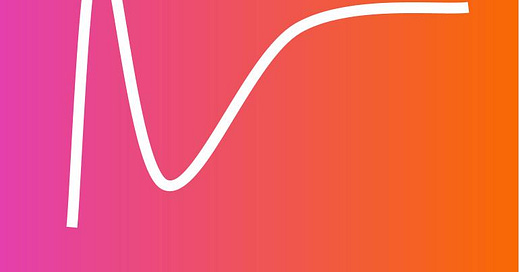Student Always: The Squiggly Learning Curve
Hi Team, Tara here!
One of the defining leadership principles at Haas, my MBA alma mater, was "Student Always." It’s a mindset that emphasizes curiosity, diverse perspectives, and the continuous pursuit of personal and intellectual growth. The key takeaway?
There is always more to learn.
As kids, we’re in structured learning environments, constantly absorbing new information. As adults, learning becomes more self-directed. It’s easy to dismiss something as "not my thing" or "I’m just bad at this" rather than recognizing that we’re simply new to it. That mindset shift can be the difference between giving up early and pushing through discomfort to reach competence—or even mastery.
Over the past few years, I’ve approached learning in different ways: taking structured classes, reading books, seeking mentorship, researching online and diving in headfirst and figuring things out as I go.
I’ve also learned that not everything needs to be mastered. Sometimes, it’s enough to develop a working knowledge of something—to speak the language without needing to be fluent.
The Learning Curve: From Beginner to Competence
When we start learning something new, we often go through what psychologists call the Dunning-Kruger effect—initial overconfidence, followed by a humbling dip when we realize how much we don’t know. Pushing past that dip is where real growth happens.
Let’s walk through some of my own learning journeys and what they taught me about navigating that curve.
Surfing: From Whitewash to Waves
Peak of Naïveté: Started by watching YouTube videos and getting tips from friends. How hard could it be?
Valley of Despair: Spent a month getting tossed around in the whitewash
Slope of Enlightenment: Eventually built enough strength and confidence to paddle out on “bigger” days (Read: 3-4 foot waves instead of 2-3 footers)
Plateau of Sustainability: Learned to read waves and enjoy the sport rather than just survive it
Takeaway: Repetition builds skill, but courage and patience get you through the rough start.
Golf: More than Just Hitting the Ball
Peak of Naïveté: Friends gave me pointers; I spent hours at the driving range. Took group lessons for a few months.
Valley of Despair: Played my first real golf course and realized that hitting a ball at the range ≠ actually playing golf
Slope of Enlightenment: Practiced my short game, played more small courses, and got comfortable by playing with friends
Takeaway: Some skills require different environments to truly click. Practicing in isolation isn’t the same as applying skills in real scenarios.
Accounting: Learning Just Enough
Peak of Naïveté: Took an accounting class during my MBA, thinking I was grasping it during the first 2 weeks
Valley of Despair: By week 4 it was total confusion. Went to office hours to get back on track.
Slope of Enlightenment: Juggled work, other classes, and crammed for exams. Passed the course, learned enough to understand broad strokes of accounting, but knew it wasn’t my passion
Takeaway: Some knowledge is worth acquiring at a surface level. Not everything needs to be mastered.
Yoga: From Casual Practice to Teaching
Peak of Naïveté: Took classes for years and decided to deepen my practice. Enrolled in Yoga Teacher Training.
Valley of Despair: Immediately felt like a beginner again. First Lesson? Guiding breathwork. Suddenly questioned if I even knew how to breathe.
Slope of Enlightenment: Practiced teaching friends, gathered feedback, and iterated on my teaching style
Plateau of Sustainability: Started teaching weekly classes. First class? Nerve-wracking. By the fourth class, I was calmer and focused more on tweaking transitions and cues.
Takeaway: The more you teach or share knowledge, the deeper your understanding becomes.
Your Learning Blueprint
Whether it’s a new hobby, a career skill, or a personal challenge, here’s how to embrace learning:
Start with curiosity – What excites or interests you? Why are you learning this?
Expect discomfort – Feeling incompetent at first is normal. Push through it. The whole point of learning is to learn. You’re building a new skill. If you already knew how to do it, it wouldn’t be learning.
Use multiple learning methods – Read, take classes, watch tutorials, find mentors, and most importantly—practice.
Decide how deep to go – Do you want to master it or just understand enough?
Iterate and reflect – Learning is a cycle. Seek feedback, adjust, and keep going. Identify how you learn best. Observe what motivates you. Iterate on how you learn.
Final Thought
The "Student Always" mindset keeps you adaptable, resilient, and ahead of the curve. It prevents stagnation and opens doors to opportunities you never knew existed. So, what’s something you’ve been curious about but haven’t pursued yet? Hit reply and tell me—I’d love to hear what’s next on your learning journey!
Happy learning,
Tara




